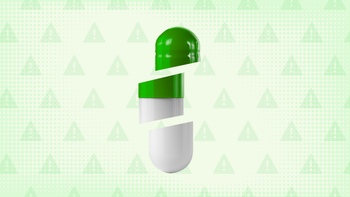
Zoloft, Prozac, and More: A List of 7 SSRIs and How They All Compare
Key takeaways:
Selective serotonin reuptake inhibitors (SSRIs) are common medications used to treat mental health conditions, like depression and anxiety. Examples include sertraline (Zoloft), fluoxetine (Prozac), and paroxetine (Paxil).
Your medical history, other medications you’re taking, and side effects are a few considerations when choosing the right SSRI for you.
There are many ways to save on your SSRI medication. Many options are available as lower-cost generics or have copay savings opportunities. GoodRx can help make your prescription more affordable.
Access savings on related medications
Table of contents

Selective serotonin reuptake inhibitors (SSRIs) are a class of medications commonly used to treat depression, anxiety, and other mood disorders. They’re thought to work by increasing availability of a chemical in the brain called serotonin. Common examples of SSRIs include fluoxetine (Prozac), sertraline (Zoloft), and paroxetine (Paxil).
But with several SSRIs available, how do you choose? Ultimately, the right SSRI for you depends on your symptoms, side effects, and other factors. And in some cases, you may need to try more than one. Below we highlight a few of the key differences between SSRIs.
1. Fluoxetine
Fluoxetine (Prozac) was approved in 1987, making it the oldest SSRI available in the U.S. It’s approved to treat:
Depression in bipolar 1 disorder
Search and compare options
Fluoxetine is available as an immediate-release (IR) and delayed-release (DR) capsule. You can also find it as an IR tablet and oral solution. The DR capsules, which can be taken once weekly, are only approved to treat MDD.
Key differences
Side effects: SSRIs can make some people feel drowsy. But fluoxetine can be more “activating,” meaning you may feel anxious and have difficulty sleeping. If it’s keeping you awake at night, you may be told to take your dose in the morning. Fluoxetine also sticks around longer in your body than other SSRIs. So, there’s a lower risk of withdrawal symptoms (called discontinuation syndrome).
Interactions: Fluoxetine can interfere with how your body breaks down other medications, resulting in several significant interactions. And since fluoxetine lasts longer in your body, some interactions can still be an issue for several weeks after your last dose.
Use in pregnancy: SSRIs are generally considered the safer antidepressant options to take during pregnancy. But fluoxetine has been linked to an increased risk of certain birth defects. However, the overall risk of these birth defects is very low. Talk to your healthcare provider about your options if you become pregnant or if you’re trying to get pregnant.
2. Sertraline
Sertraline (Zoloft) is used to treat several of the same mental health conditions as Prozac. In addition to MDD, OCD, and PMDD, sertraline is approved for:
Panic disorder
Read more like this
Explore these related articles, suggested for readers like you.
Sertraline is available as tablets, capsules, and an oral solution.
Key differences
Side effects: Sertraline may be more likely to cause diarrhea than other SSRIs, though this usually goes away within a few weeks.
Use during pregnancy: Of the SSRs, sertraline may be one of the safest to take during pregnancy. Even so, it’s not without potential risks. Your healthcare provider can help you determine if it’s best for your situation.
3. Paroxetine
Paroxetine (Paxil, Paxil CR) is approved to treat most of the conditions we’ve covered so far. It’s available as IR and ER tablets, and as an oral suspension.
Pexeva is another form of paroxetine that’s approved to treat many of the same conditions as Paxil. It’s only available as an IR tablet. Brisdelle is a lower-dose paroxetine capsule that’s specifically approved to treat hot flashes in menopausal women.
Key differences
Side effects: Paroxetine tends to cause more side effects than other SSRIs. These can include weight gain, sexual side effects, and drowsiness. Paxil is also more likely to cause discontinuation syndrome (withdrawal) than other SSRIs — especially if you stop taking it too quickly. But side effects like weight gain and decreased libido may be less likely if you’re taking Brisdelle.
Interactions: Paroxetine has several of the same interactions as fluoxetine. And unlike other SSRIs, paroxetine can build up in your body if you have mild to severe kidney disease. Depending on your kidney function, you may need to take a lower dosage.
Use during pregnancy: Overall, the risks associated with taking SSRIs during pregnancy appear to be low. But several birth defects have been linked to paroxetine in particular. Your healthcare provider can help you weigh the pros and cons of continuing, stopping, or switching treatment.
4. Citalopram
Citalopram (Celexa) is only approved to treat depression. But it’s used off-label to treat several other mental health conditions. It’s available as a tablet, capsule, and oral solution.
Key differences
Side effects: Compared to other SSRIs, citalopram is associated with a higher risk of abnormal heart rhythms, especially if you’re taking higher doses. Because of this, certain people may need to take a lower dosage. Examples include adults over age 60, people with liver problems, and those taking certain medications that interact with citalopram.
Interactions: Compared to other SSRIs, citalopram may be less likely to interfere with how your body breaks down other medications. So, citalopram may have fewer interactions than other SSRIs. But as mentioned above, interactions are still possible.
5. Escitalopram
Escitalopram (Lexapro) is approved to treat MDD and generalized anxiety disorder (GAD). It’s available as a tablet and oral solution.
Escitalopram and citalopram are similar, but they’re not the same. Citalopram is made of two parts: an active compound and an inactive compound. Escitalopram only contains the active compound. Its effects are also more specific to serotonin. In theory, this is thought to lower the risk of certain side effects normally associated with taking citalopram.
Key differences
Side effects: Escitalopram may also have a risk of abnormal heart rhythms, especially if you take doses that are higher than recommended. But the risk of abnormal heart rhythms appears to be much lower than citalopram.
Interactions: Similar to citalopram, escitalopram may have fewer interactions than other SSRIs.
6. Fluvoxamine
Fluvoxamine (Luvox) is an SSRI medication approved for OCD. It’s available as IR tablets and ER capsules.
Key differences
Side effects: All SSRIs can cause nausea and diarrhea. But fluvoxamine tends to cause these side effects more often. And in some clinical studies, more people stopped taking fluvoxamine due to side effects than with other SSRIs. And, like paroxetine, it’s one of the SSRIs that’s more likely to cause discontinuation syndrome if you stop it abruptly.
Interactions: Fluvoxamine also has an increased risk of interactions. This includes a few that may be different from other SSRIs. For example, fluvoxamine can interfere with how caffeine is broken down in your body. So, you may need to be cautious with your caffeine intake while taking it.
7. Vilazodone
Vilazodone (Viibryd) is the most recent SSRI to be approved in the U.S. It’s available as an oral tablet that’s approved to treat MDD.
Vilazodone is the only SSRI on this list that affects serotonin in two different ways to relieve depression symptoms. Though, we still don’t know if this difference makes it work better than other antidepressants. Researchers do think this difference might lessen certain side effects — like sexual effects and weight gain — but more research is needed to know for sure.
Key differences
How you take it: Taking your SSRI with food can help with side effects like nausea. But for most SSRIs, you can take your dose with or without food. However, vilazodone should be taken with food. If you take it on an empty stomach, it may not work as well.
How do I find out which SSRI is right for me?
The best SSRI for you often comes down to several factors. Side effects, interactions, and medical history are a few things your healthcare provider may consider.
A few considerations may include:
Can you swallow pills? If you have difficulty swallowing pills, most SSRIs are available as a liquid. Fluvoxamine and vilazodone are two exceptions.
Do you take other medications? Certain SSRIs, including paroxetine and fluoxetine, have a higher risk of interactions. If you’re taking several medications, other SSRIs like citalopram or escitalopram may be preferred.
Do you have any other health conditions? Your medical history could also influence your choice of SSRI. For example, citalopram may be avoided if you’ve recently had a heart attack.
Are you having side effects? Some side effects may be more likely with certain SSRIs. If a particular side effect starts affecting your quality of life, there may be another SSRI that’s less likely to cause it.
What symptoms are bothering you? Sometimes an SSRI is chosen because its side effects may help your symptoms. For example, a more sedating SSRI may be helpful if you’re experiencing agitation.
Have you taken an SSRI before? If you’ve taken an SSRI in the past, and it’s helped you, your provider might recommend trying the same one again.
Are you pregnant? If you’re pregnant or trying to conceive, your provider might recommend sertraline or citalopram. Experts consider these to be two of the safer SSRIs to use during pregnancy.
Keep in mind that SSRIs affect everyone differently. And you may need to try more than one before finding the best fit for you.
How to save on SSRIs
There are many ways to save on your SSRI medication. GoodRx can help you navigate your options, which may include GoodRx discounts, copay savings cards, and patient assistance programs. You can find SSRIs as low as $5 with a free GoodRx discount.
The bottom line
There are several SSRI options available. Examples include fluoxetine, paroxetine, and sertraline. The right one for you can depend on your specific symptoms, health history, and other factors. If one SSRI isn’t a good fit, you may find success with a different one.
Why trust our experts?



References
Brown, C. H. (2008). Overview of drug-drug interactions with SSRIs. U.S. Pharmacist.
Centers for Disease Control and Prevention. (2020). Key findings—a closer look at the link between specific SSRIs and birth defects.
Chauhan, M., et al. (2022). Vilazodone for major Depression in Adults: Pharmacological profile and an updated review for clinical practice. Neuropsychiatric Disease and Treatment.
Culm-Merdek, K. E., et al. (2005). Fluvoxamine impairs single-dose caffeine clearance without altering caffeine pharmacodynamics. British Journal of Clinical Pharmacology.
Culpepper, L. (2002). Escitalopram: A new SSRI for the treatment of depression in primary care. Primary Care Companion to the Journal of Clinical Psychiatry.
DailyMed. (2021). Escitalopram.
DailyMed. (2021). Fluoxetine hydrochloride.
DailyMed. (2022). Citalopram.
DailyMed. (2023). Fluoxetine.
Edinoff, A. N., et al. (2021). Selective serotonin reuptake inhibitors and adverse effects: A narrative review. Neurology International.
Ferguson, J. M. (2001). SSRI Antidepressant Medications: Adverse Effects and Tolerability. Primary Care Companion to the Journal of Clinical Psychiatry.
Hanrahan, C., et al. (2014). Antidepressant medications: The FDA-approval process and the need for updates. Mental Health Clinician.
Hemeryck, A., et al. (2002). Selective serotonin reuptake inhibitors and cytochrome P-450 mediated drug-drug interactions: An update. Current Drug Metabolism.
Marken, P. A., et al. (2000). Selecting a selective serotonin reuptake inhibitor: Clinically important distinguishing features. Primary Care Companion to the Journal of Clinical Psychiatry.
Portman, D. J., et al. (2014). Effects of low-dose paroxetine 7.5 mg on weight and sexual function during treatment of vasomotor symptoms associated with menopause. Menopause.
Rush, A. J. (2023). Patient education: Depression treatment options for adults (beyond the basics). UpToDate.
Shirazian, S., et al. (2017). Depression in chronic kidney disease and end-stage renal disease: Similarities and differences in diagnosis, epidemiology, and management. Kidney International Reports.
Shoar, N. S., et al. (2021). Citalopram. StatPearls.
Shrestha, P., et al. (2022). Paroxetine. StatPearls.
Sohel, A. J., et al. (2022). Fluoxetine. StatPearls.
U.S. Food and Drug Administration. (2017). FDA drug safety communication: Revised recommendations for celexa (citalopram hydrobromide) related to a potential risk of abnormal heart rhythms with high doses.





























